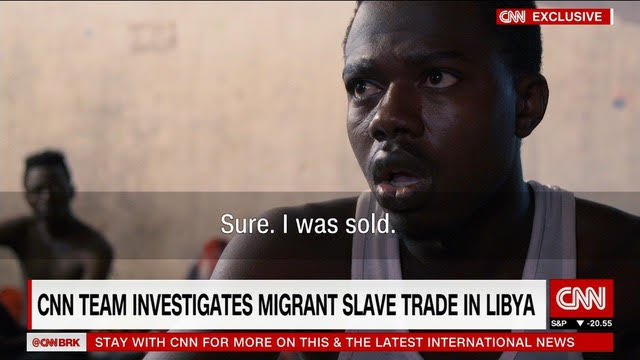The United Nations has described the Mediterranean as the deadliest frontier in the world with at least 33,761 people drowning in their attempt to reach Europe since 2017.
The report, released Friday by the International Organization for Migration (IOM), notes that this year alone over 160,000 people have reached Europe with some 75% landing in Italy. Despite all attempts to stem the flow, an average of 14 migrants, mostly sub-Saharan Africans, die every day at sea.
A day after the release of the report, 31 migrants died after their boat capsized off the coast of Libya, bringing the death toll for this year to almost 3,000.
Many more see their European dream turn into a nightmare long before they’re packed on rubber dinghies (most of which are shipped through Maltese and Turkish ports) on Libyan beaches.
The EU’s strategy is clear: stop people crossing the sea and keep them in Libya. The EU plan to externalise its migration problem to African countries, after partly outsourcing it to Turkey, has clearly failed. As migration routes shift, the human tragedies shift to new areas.
Thousands of migrants are locked up in Libyan concentration camps where they are beaten up, raped and as a shocking CNN investigation showed, sold to the highest bidder.
In scenes reminiscent of slave trading in the 19th century, footage shows men being auctioned off for as little as $400 each.
The United Nations estimates there are now between 700,000 and a million migrants in Libya. UN Secretary-General António Guterres said last Monday he was “horrified” at reports of migrants being sold as slaves, which could amount to crimes against humanity.
Once again, Guterres underlined the need to manage migration flows in a humane manner that addresses the root causes, increases opportunities for legal migration and cracks down on smugglers.
But these calls continue to fall on deaf ears. This time around, we had no urgent meetings in Brussels or summits in Valletta. If only EU leaders, especially of countries like Malta and Italy who boast of having a special relationship with Libya, show the same urgency they did when they declared war on traffickers only to see the agreement with the Tripoli government collapse before it could be implemented.
But the EU’s short-sightedness and lack of compassion is a sad reflection of its citizens’ insensitivities and justified fears. We might be living bang in the centre of the world’s deadliest frontier, yet not many seem to care about the tragedies happening in our seas.
Returning ‘failed’ asylum seekers is a necessary policy but it must be done in a humane fashion, after due process, and only when people’s safety is guaranteed.
Providing aid to developing countries and helping them build a future for their young people is a long-term effort, but the situation also requires immediate solutions. Stemming migration by building more barriers means that Europe’s policies contradict its basic principles. And expecting African governments and militias in Libya to repatriate desperate people to places where their lives are in danger certainly does not respect people’s basic human rights.
Creating hotspots in Libya is a non-starter. The only genuinely sustainable and humane solution is the creation of safe, legal pathways for asylum seekers, but there is no political will to do so as most politicians know that this would cost them votes.
The fact that many of these tragedies are unfolding far from European eyes does not justify inaction; or worse, political short-sightedness that puts electoral interests before human life.













